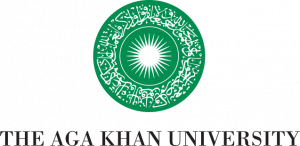Understanding the policy environment, people’s perception and use, and co-creating intervention for labelling of SSBs to reduce consumption
Introduction
Sugar-sweetened beverages (SSBs) refer to any beverage with added sugar or other sweeteners, including soda, tonic, fruit punch, lemonade (and other ‘ades’), sweetened powdered drinks, sweetened flavoured milk beverages, sweetened tea and coffee and other hot beverages, as well as sports and energy drinks. Frequent intake of SSBs is associated with obesity, Type 2 Diabetes Mellitus, heart disease, kidney diseases, non-alcoholic liver disease, gout (a type of arthritis), and dental caries. SSB consumption is high and growing in many low- and middle-income countries (LMICs), and becoming a major public health threat for achieving good nutrition.
Interventions such as taxation, nutrition profiling and labelling, and marketing restrictions have been found to be effective in improving diets, tackling obesity, and reducing health care costs. Nutrient profiling of foods is defined as the science of ranking foods based on their nutrient composition. Their goal is to identify nutrient-rich foods, generally defined as those that contain more nutrients than calories and are low in fat, sugar and salt. Assigning foods into categories based on their nutrient content can contribute in consumer education and dietary guidance, nutrition labelling, and the regulation of health claims. Many nutrient profiling systems have been designed, including front-of-pack (FOP) labelling to guide food selection decisions and the regulation of marketing to children. A number of studies have suggested that appropriate labels reduce predicted preferences for and reported probability of purchasing SSBs. However, little is known regarding the policies and laws on food nutrient profiling and regulations on nutrient composition in many LMICs.
Research Aim and Objectives
The aim of this multi-country research study is to generate evidence to support effective food nutrient profiling and regulations on nutrient composition with a special focus on SSB labelling in Bangladesh, Nepal and Pakistan, and to inform policy discussions. Specific objectives of this study are:
- To analyze the current policies and laws on food nutrient profiling and labelling? regulations on nutrient composition, and identify gaps in the existing policies and laws on nutrient profiling in the region with international standards
- To conduct SSB pack analysis, as a case study, for understanding the current type of nutrient labels, health claims and other marketing strategies used by SSB produced in selected countries and compare those against international standards
- To co-create culturally relevant and understandable package labels of SSBs with relevant stakeholders in each country
- To improve the generalisability of the findings, contribute in policy advocacy and policy influence in the region and support the next stage of research by establishing a multi-country network of people and organisations
Methodology
This research will involve a mixed-methods study in Bangladesh, Nepal and Pakistan, with invitations extended to Sri Lanka and India to join Knowledge and Networking partners. These countries have been selected due to their wide experience of food nutrient profiling, high prevalence of SSB use and associated non-communicable diseases, high proportion of children and youth having demographic dividend, considerable volume of SSB export and import, strong industry influence, and existing gaps in policy, enforcement, and monitoring. The diversity of experience/context across the three research implementing countries and the two additional Knowledge and Networking partners will enable the study to identify common successful implementation strategies to share across Asia and LMICs with a similar context. This study aims to be a first step and entry point to conduct joint research on food nutrient profiling in the future.
This research is divided into two phases. The first phase will be coalition formation and context analysis, which includes establishing a multi-country network of people and organisations. This will bring together multiple sectors across governments and civil society for strengthening overall food nutrient profiling with a focus on SSB labelling systems. This phase will also involve a scoping review, analysis of secondary data, and semi-structured interviews to understand the existing policies relating to SSB packaging and labelling as a case study, and identify the gaps in policy, administration, reporting and monitoring systems of SSB labelling. Finally, pack analysis and household surveys will be conducted across three countries to understand the perceptions, attitudes, and practices regarding SSB labelling on perceived product healthfulness, and people’s interest in consuming, and patterns of consumption of, SSBs.
The second phase will focus on co-creating interventions. The co-creation will be a highly iterative process, involving community dialogues through a series of workshops and stakeholder events. The review, analysis, and survey findings will inform discussions at the workshops and meetings with a diverse range of stakeholders, including community representatives, policymakers, healthcare staff, and researchers. The Knowledge and Networking partners will also bring findings from their own policy gap analysis, country experiences, and expertise to support the co-creation process.
Research Partners
This 30 month research project is a collaborative effort between the ARK Foundation, a research NGO in Bangladesh, Aga Khan University in Pakistan, and HERD International in Nepal. The Center for Health innovation and Policy Foundation in India, as well as the Institute of Policy Studies of Sri Lanka, will serve as Knowledge and Networking partners.
Associated Team Members
Sujan Sapkota
Project ManagerMr. Sujan Sapkota is an experienced professional with specialization in Public Health Nutrition, showcasing a distinguished blend of academic knowledge and extensive practical experience spanning over a decade. His educational background includes MSc. in Food Science and Nutrition, Master’s in Rural Development, with supplemental courses in Research Methodology. Mr. Sapkota has developed comprehensive understanding of health, nutrition, Water Sanitation and Hygiene (WASH), and Disaster Risk Reduction (DRR) through his career, showcasing his specialized expertise in these areas with a rich [...]
Learn moreSulata Karki
Senior Research OfficerSulata Karki is a public health professional with a wealth of experience spanning over seven years. Holding a Master’ Degree in Public Health, she has made significant contributions to various healthcare organizations actively participating in public health programs and research projects. Ms. Karki’s comprehensive expertise extends across diverse areas, including maternal and child health, digital health, mental health, and eye health. As a proficient mixed-method researcher, Ms. Karki has been actively engaged in implementation science, specifically in an evaluation study [...]
Learn moreBipul Lamichanne
Senior Research OfficerBipul Lamichhane is a dedicated and experienced public health professional based in Kathmandu, Nepal. He holds a Master’s degree in public health from Western Sydney University in Australia. With a diverse background encompassing nutrition, disaster management, immunization, and health budget planning, Bipul has established himself as a versatile expert in the field of public health. Bipul’s recent contributions involve his substantial support in the successful implementation of projects such as School AMR, Action Plan Development for NENAP IP, FAB-HPSRIs, and [...]
Learn moreGhanshyam Gautam
Lead - Health Economics, Systems and Social ProtectionGhanshyam Gautam
Lead - Health Economics, Systems and Social ProtectionAppointed as the lead of Strategy, Partnership and Business Department Dr. Ghanshyam Gautam is a Health Economist possessing more than 20 years of experience in health policy and systems reform, social protection, evidence-based planning and capacity development. His key areas of expertise include policy and strategic reform, health systems strengthening, health financing and universal health coverage, social protection, system and policy research. He currently holds the position of Lead- Health Economics, Systems and Social Protection at HERD International and has [...]
Learn moreSushil Chandra Baral
Managing DirectorDr. Sushil Chandra Baral is an experienced health and development expert with over 25 years of experience in research and development. Specializing in health systems, health policy, and planning at both national and international levels, Dr. Baral has played a pivotal role in communicable disease control, specifically Tuberculosis. He serves as a Managing Director at HERD International. In the past, he worked as a Strategic Advisor for the Nepal Health Sector Support Programme demonstrating expertise in program-based operational research and [...]
Learn moreProject Location
Similar Projects
BACKGROUND Evidence has shown that antibiotic resistance (ABR) is a growing threat to public health in Nepal. This project proposes to ...
Reaching the unreached with family planning services … The UK Department for International Development (DFID) and the United States ...
Background The growing numbers of urban poor around the world face several health challenges including the double burden of ...
Background Antimicrobial resistance (AMR) is when microorganisms evolve mechanisms to survive the drugs designed to destroy them (WHO ...
Monitoring and Evaluation of Remote Areas Maternal and Newborn Health Pilot (RAMP), Taplejung This was a pilot project ...
Background The growing numbers of urban poor around the world face several health challenges including the double burden of diseases, ...
Background UNICEF’s Acute Respiratory Infection Diagnostic Aid (ARIDA) project was initiated as a response to the call for better ...
Background TDR, the Special Programme for Research and Training in Tropical Diseases, hosted at the World Health Organization in ...
Introduction The climate crisis is a global health threat. Heatwaves, droughts, floods and landslides cause substantial morbidity and ...
Healthcare accessibility is increasing worldwide as nations strive for Universal Health Coverage (UHC). However, access alone does not ...








